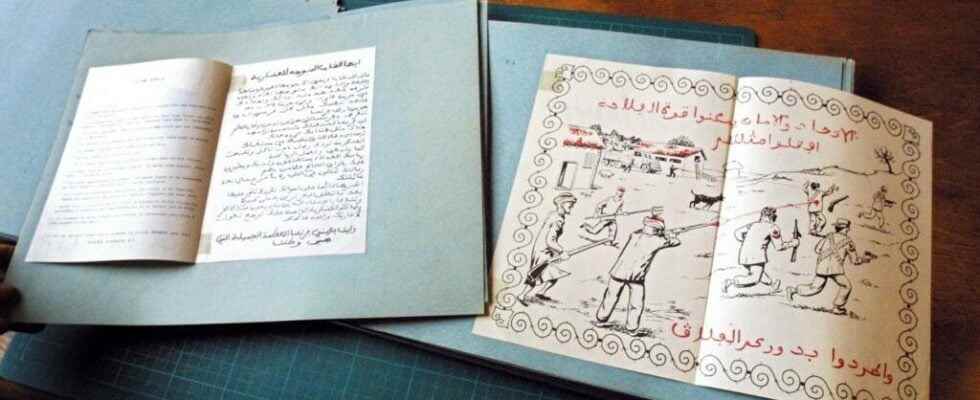For two days, members of civil society from both shores of the Mediterranean met in Marseille for the Forum of Mediterranean Worlds, wanted by President Emmanuel Macron. A group of young people who made proposals in favor of the appeasement of memory to the French president led a workshop. They want to make possible a common narrative between the different actors of the Algerian war.
From our correspondent in Marseille,
Nour’s grandparents fought for the independence of Algeria, she grew up there. She is a member of the group Views of the young generation on Franco-Algerian memory since its creation last May.
” It makes you gain in humility because you realize that the story does not revolve around you. And don’t revolve around what our parents went through and what they passed on to us. I think you really have to try to behave with this humility to enrich yourself personally and accept the fact that all your memories have a place “, believes Nour.
► Also to listen: Memories of the Algerian war, silences and unsaid in families
Something of Algeria in itself
Next to her, Linda, 27. ” I am a harki granddaughter and a separatist granddaughter. What is the use of the third generation in this, what place does it have to take? It can take on a role of appeasement, since we did not experience this war in Algeria. She feels the fallout, but it’s not direct. We can have a certain distance finally “says Linda.
All, or almost, say they have something of Algeria in them. Adèle, 21, granddaughter of Pieds-noirs:
I have often been asked, what are your origins? I say French. And they answer me, just French? Yes, but my parents are Pieds-noirs. But what does it mean to be pied-noir? Even if I did not experience this war, I did not experience colonization. It’s still part of my identity. And even beyond that, it’s part of the French identity. It is important to know the history of your country. And it has to go through the youth. Me, I’ve already been told: “That’s a story that has passed. I don’t understand why it’s the young people who talk about it!” It may have passed, but we still talk about it. We don’t say that to young people who talk about the Second World War.
► To read also: The teaching of the Algerian war in France: between history and memory
A French story
And they insist on the fact that to speak of the war in Algeria is to speak of the history of France. Clémence’s grandfather was called to Algeria. And she really considers that this story should not be confined to the families concerned. “ A whole section of a ghost audience is missing. All of French society is concerned from the moment France fought. And that France has been involved just as much as it is. It’s a French story. So it’s part of the history of all French people “, insists Clemence.
To interest the public and find an acceptable common narrative, these young people work on projects, such as that of a museum. For Clémence, “ct is a concrete project that was proposed in Benjamin Stora’s report, which will probably see the light of day in Montpellier in a few years. Who has for first goal to expose the truth, and if possible to relieve and to reconcile the memories. We have been in intense reflection for a few weeks on this museum project, to find out what form it will take, which voice is legitimate, what part each memory will have in this museum, how to make a selection. Because from the moment there is a museum, there is necessarily a selection. »
The public present is also very receptive. There were many pied-noirs there who decided to stay for a long time to discuss with the young people.
